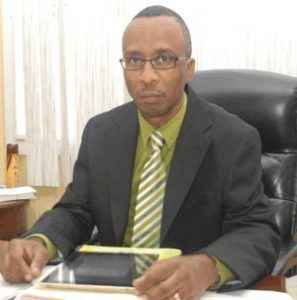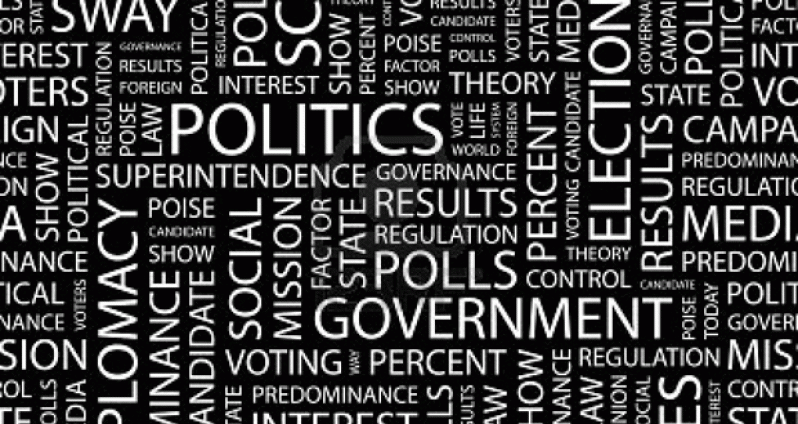A FEW months ago, during the closing of the last National Budget Debate, I went home from work one night and watched something unprecedented happen in Parliament.

I watched an Opposition parliamentarian not only acknowledge but list a number of achievements made under the government of Guyana.
AFC Leader, Raphael Trotman – in the sort of moment of honesty and objectivity that is refreshing as it is rare within local politics–mentioned achievements like the schools, hospitals, roads, the Takutu and Berbice bridges and other major infrastructural works as clear and undeniable evidence of progress made. More importantly, he decried the cycle of negativity that has typified parliamentary debate since Independence, and called for a better, more objective way of conducting the business of the country’s legislature.
“An adversarial parliamentary system,” stated Trotman, “is quite against and contrary to the cohesion and development in a multi-ethnic, multi-religious and multi-dimensional society such as Guyana’s.”
I called him the very next day and immediately congratulated him on that courageous, that morally upstanding stance, one that was no doubt made at the risk of losing serious personal political capital, particularly in an election year.
As the 2011 polls loom in the near future, I would like to extend Trotman’s call for objectivity and fairness in political judgments not only within Parliament, but within the entire sphere of public life.
‘…Our politics clearly needs to evolve to the point where credit is given when it is due. This isn’t just to save valuable time and energy to get on with the business of running the country in the national interest. It is also necessary, so that when the time comes to engage in legitimate criticism, the credibility of the very people who criticise, who currently focus on the negative without even acknowledging the positive, still have a leg or two to stand on.
‘For me, it is dishonest to try to distort the public’s perception of projects that clearly and by every objective measure, redound to the public’s benefit…there are certain things that should and need to transcend politics, even in an election year.’
Before I proceed, I am by no stretch of the imagination suggesting that we go about being uncritical of those at the top. Public criticism is the major method of keeping public officials on their toes and preventing them from falling into complacency, in the execution of their duties.
It is precisely because of this, however, that whenever there is criticism, it has to be perceived as legitimate and authentic. What currently prevails is an environment where official initiatives are perpetually attacked, not necessarily because they are flawed but simply by virtue of the possibility for political mileage within the criticism.
In a previous article, I had said that Presidents Burnham and Hoyte, while I may not be a big supporter of their policies overall, have undoubtedly contributed to the development of Guyana and this is something that no one can objectively argue against. Similarly, in my mind, there are some things upon which there should be no debate in the public domain.
Foremost among these is crime. I cannot help but imagine that every single time someone from the Opposition goes out publicly and says something that is outrageously critical of local law enforcement, every single significant criminal cabal out there – from the white collar racketeers to the narco-trade bosses–feel a bit safer, feels that they can operate with even more impunity than they already seem to be operating. Considering the smallness of our society, for me it’s the equivalent of the US Democrats and Republicans arguing stupidly over anti-terror strategy while al-Qaeda is building bombs in the next room.
Another area which I feel that is beyond debate is anything that falls under the aegis of human development. For example, there is the unprecedented school-uniform distribution programme, this year being executed to the tune of some $300M. How do you in good conscience argue against something like that?
Another area is women’s affairs in general, from the incredible work done to support single mothers to the revamping of our sexual violence laws. It was absurd the number of letters, some of them rabidly vicious, that I saw appearing in the press, and I am told online, against the Feminition exhibition held recently.
The distribution of house lots I believe also fall under the aegis of human development and in the past 10 to 15 years, we have seen an accelerated drive in the process to make available to Guyanese people their own piece of the nation. Now I am aware of the allegations that have been made with regard to inherent prejudices within the system, claims that – if true – need to be dealt with in a systematic manner; but making claims without supporting evidence seems not only simply, to use one of Mr. Trotman’s words, “adversarial.”
Disaster response is another area that I believe should not be up for debate, at least not in the midst of the disaster itself. Already, I’ve heard comparisons of the government’s response in the flooding in Lethem to the Bush administration’s response to Katrina a few years ago. Are these people serious? In comparison to George Bush’s decision to continue trying to improve his golf swing on learning of the disaster, and his praise of the incompetent and politically appointed FEMA Director Michael Brown (“Brownie, you’re doin’ a heckuva job”), what we’ve had here is a coordinated and methodical response including top level cabinet officials as well as the President and Prime Minister, going on the ground not only to assess the situation but also to actively take part in relief efforts.
My point is, our politics clearly needs– as Raphael Trotman emphatically implied earlier this year–to evolve to the point where credit is given when it is due. This isn’t just to save valuable time and energy to get on with the business of running the country in the national interest; it is also necessary, so that when the time comes to engage in legitimate criticism, the credibility of the very people who criticise, who currently focus on the negative without even acknowledging the positive, still has a leg or two to stand on.
For me, it is dishonest to try to distort the public’s perception of projects that clearly and by every objective measure redound to the public’s benefit. There are areas in which things can be done better, some of which I will deal with next week, but let me repeat – in closing – that there are certain things that should and need to transcend politics, even in an election year.
By Keith Burrowes



.jpg)








